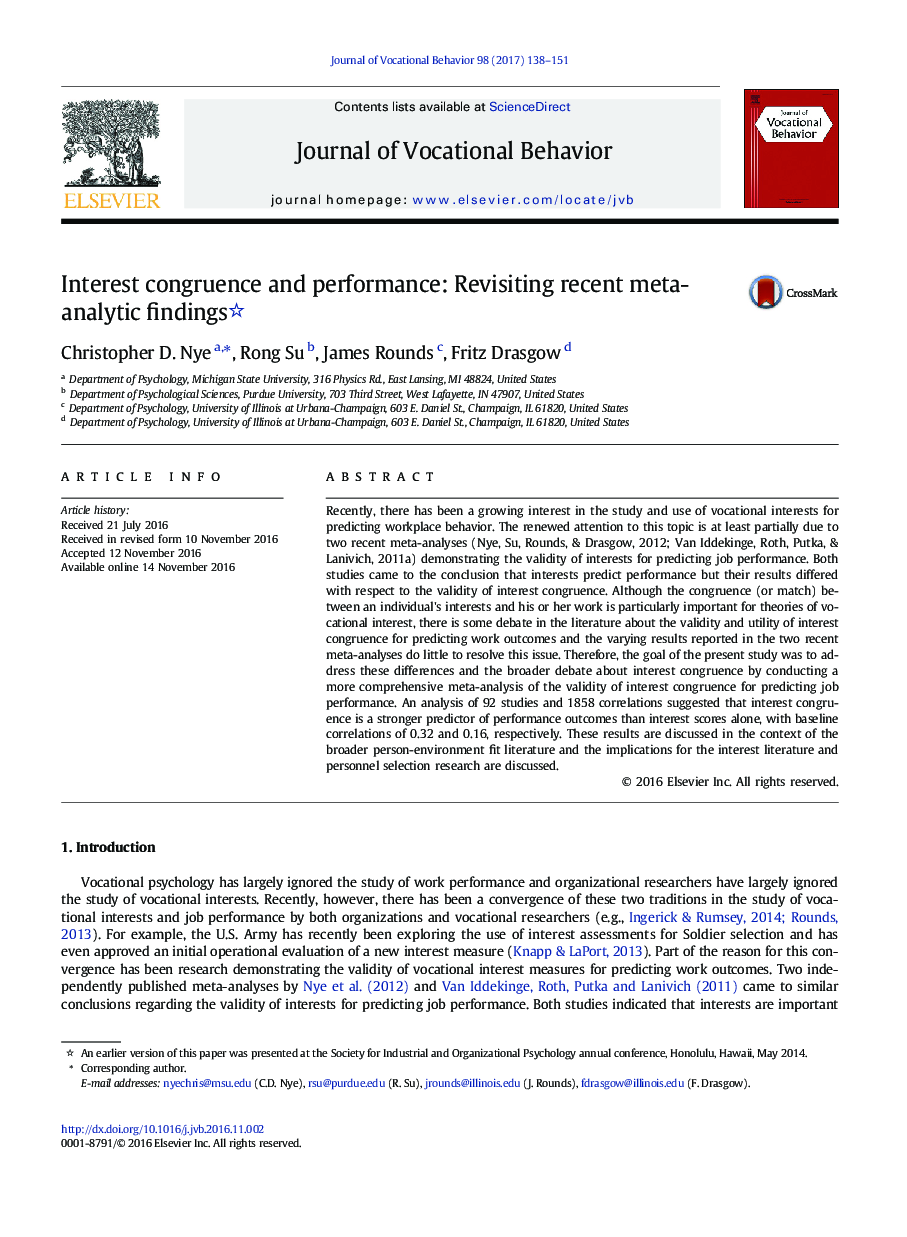| کد مقاله | کد نشریه | سال انتشار | مقاله انگلیسی | نسخه تمام متن |
|---|---|---|---|---|
| 5035176 | 1471802 | 2017 | 14 صفحه PDF | دانلود رایگان |
- A meta-analysis of the relationship between vocational interests and performance
- Goal was to reconcile conflicting findings in the literature regarding congruence.
- Vocational interest scores were moderate predictors of performance.
- Interest congruence was a better predictor than interest scores alone.
- Results provide strong support for person-environment fit theories.
Recently, there has been a growing interest in the study and use of vocational interests for predicting workplace behavior. The renewed attention to this topic is at least partially due to two recent meta-analyses (Nye, Su, Rounds, & Drasgow, 2012; Van Iddekinge, Roth, Putka, & Lanivich, 2011a) demonstrating the validity of interests for predicting job performance. Both studies came to the conclusion that interests predict performance but their results differed with respect to the validity of interest congruence. Although the congruence (or match) between an individual's interests and his or her work is particularly important for theories of vocational interest, there is some debate in the literature about the validity and utility of interest congruence for predicting work outcomes and the varying results reported in the two recent meta-analyses do little to resolve this issue. Therefore, the goal of the present study was to address these differences and the broader debate about interest congruence by conducting a more comprehensive meta-analysis of the validity of interest congruence for predicting job performance. An analysis of 92 studies and 1858 correlations suggested that interest congruence is a stronger predictor of performance outcomes than interest scores alone, with baseline correlations of 0.32 and 0.16, respectively. These results are discussed in the context of the broader person-environment fit literature and the implications for the interest literature and personnel selection research are discussed.
Journal: Journal of Vocational Behavior - Volume 98, February 2017, Pages 138-151
